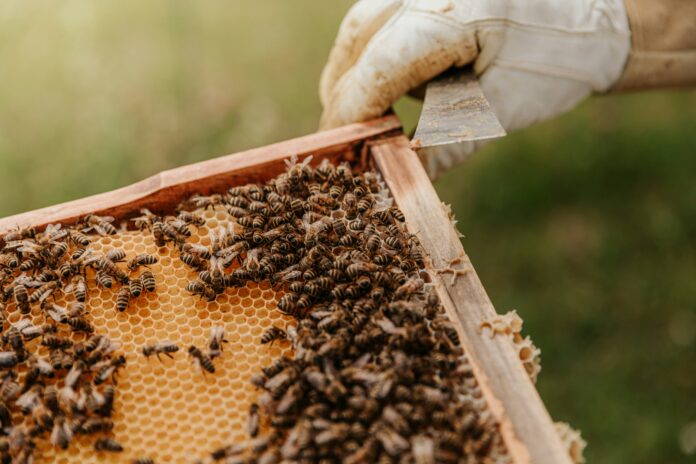
Bees.
They’ve been the buzz for climate change activists for years. Beekeepers and hobbyists are helping to rebound America’s bee shortage over recent years, but Colorado has an interesting history of legislating around the critical pollinators.
The laws date back to 1902 and focus mostly on penalties for “adulterating honey in Colorado,” according to an April 1903 article by The Rocky Mountain News. At the time, it was a first-in-the-nation law. It imposed a heavy fine on violators and seemed to be the beginning of Colorado’s long history of laws protecting bees and encouraging bee health and safety.
“Adulteration of the comb or extracted honey has never secured a foothold in Colorado, and I say with all confidence that it never will,” an anonymous apiarist told The Rocky Mountain News in 1903.
Around 60 years later, lawmakers wanted to increase regulations around beehives to prevent the spread of bee diseases between apiaries. The state adopted the Colorado Bee and Bee Products Act in 1963, according to the Colorado Department of Agriculture. The act regulated inspections of beehives statewide and required the destruction of diseased hives. Inspections before 1985 were done randomly or as requested by beekeepers, according to the department.
Inspections dwindled after the program switched to a self-funded model and the routine inspections stopped in 1987. Licensed beekeepers plummeted in the late 1980s. The program eliminated registration and licensing fees in 1990, and the program was never refunded again. Now, beekeepers need to request inspections if they want to be able to export bees to another state and they have to pay out of pocket for costs associated with an inspection.
Most modern laws concerning bees and other pollinators are focused on pesticide regulation.
In 2022, Colorado lawmakers passed a bill that approved a study to protect native pollinating insects. Senate Bill 22-199 notes the state is home to 946 species of native bees, alongside a plethora of diverse species of butterflies, moths, wasps, beetles and flies, which are all critical pollinators. Chief concerns for these pollinators, according to the bill, include habitat loss and climate change. Shifts in pollinators may impact food supply and the health and safety of both people and state ecosystems.
Last year, state lawmakers passed a bill that limits the use of neonicotinoid pesticides, an insecticide that’s highly toxic to bees even in small quantities. SB23-266 took specific aim at any pesticide containing chemicals belonging to the neonicotinoid class of chemicals and classified the pesticide as limited use, requiring a dealer license to obtain it in the state. The law doesn’t apply to products containing the active ingredients of the pesticide in certain situations, like using it indoors as a pest control product according to the product instructions or in academic research.

